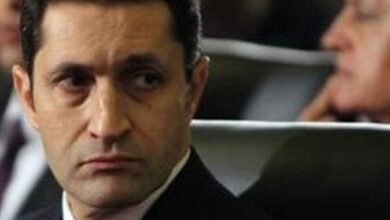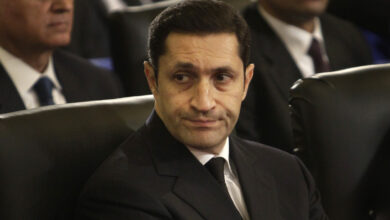Rights groups are expressing unease about the recent decision to reinvoke and expand the scope of Egypt's Emergency Law.
The cabinet announced in a Saturday statement that following a meeting between it and the ruling Supreme Council of the Armed Forces (SCAF), a decision had been made to “enforce” the Emergency Law even though it was scheduled to expire at the end of the month, and that security bodies will take “legal procedures” to crackdown on acts of “thuggery." Furthermore, the statement reads that security bodies “will use all legal powers to safeguard the country’s security."
The renewal of the government's commitment to implement the Emergency Law comes following a vow by the SCAF to abolish it by 30 September as per a constitutional declaration passed last March. The abolishment of the Emergency Law has been a top demand of the 25 January revolution.
However, on Sunday, SCAF member General Mamdouh Shaheen said during a satellite TV interview, “What the Egyptian street is currently witnessing is terrorism,” announcing that the military has extended its authority to try these crimes in exceptional state security emergency courts.
The decision follows a weekend of mass protests on 9 September against SCAF policies that culminated in a breach of the Israeli Embassy by protesters angered by what they perceive to be Egyptian lenience toward Israel. The embassy incident follows the deaths of five Egyptian officers in August, accidentally shot by Israeli forces reportedly pursuing militants that fled to Sinai after killing eight Israelis near the southern town of Eilat.
In addition to the emergency legislation now being actively enforced, new offenses have been added to the list of crimes that can be tried in state security courts.
According to the state-run MENA news agency, these offenses include criminal damage to state property and disrupting people’s work, blocking roads through demonstrations, and spreading false news and information.
This decision follows the March passage of a law whose provisions are applicable during a state of emergency, banning strikes and demonstrations that impede the work of public institutions. The law was criticized by rights groups as an attack on the right to freedom of assembly.
Egypt has lived under a state of emergency since 1981. Critics allege that the unchecked powers of arrest and detention granted to the Interior Ministry under the law’s provisions were used by the regime of ousted President Hosni Mubarak to silence his political opponents. Rights groups estimate that some 10,000 people since then were detained without charges – sometimes for years – under the law’s provisions.
In response to this criticism, Mubarak announced when the state of emergency was renewed for two years in May 2010 that the Emergency Law powers would only be applied to terrorism and drug offenses.
Trials in state security courts have largely stopped since the SCAF took over in February and only two are currently being heard. Both concern sectarian violence that broke out in Cairo and Minya in March and May respectively.
Instead, an estimated 12,000 civilians have been subjected to Egypt’s other form of exceptional justice – military courts – since February. Human Rights Watch said on Monday that more civilians have been tried in military courts in the eight months since the SCAF took power than under Mubarak during his 30-year tenure.
“We are looking at a situation where the human rights and rule of law situation is worse now than under Mubarak, because in addition to the exercise of power without judicial review, you have a military actively violating human rights,” Heba Morayef, Egypt's researcher with Human Rights Watch, said.
The SCAF has repeatedly condemned protesters as both thugs and members of foreign-funded organizations with nefarious intent. State-owned Al-Ahram’s lead headline announced on Monday that according to Justice Minister Abdel Aziz al-Guindi, “foreign fingers” were intent on “bringing down Egypt," and that a “small Gulf country” had given LE181 million to an Egyptian NGO to “create chaos in Egyptian society."
On Sunday, officials from the public broadcasting agency raided the offices of Al Jazeera Mubasher Misr and arrested a member of its staff, claiming that the station had been broadcasting without a license. The raid came four days after Information Minister Osama Heikal announced that new satellite television licenses would not be granted without specifying for how long.
Some observers have expressed fear that Sunday’s events, and the decision to extend the scope of the Emergency Law, presages a return to the type of draconian measures employed by Mubarak and anger to which fueled the revolution. Morayef describes the SCAF’s response as “classic Mubarak knee-jerk think on how to deal with security problems."
"If anything confirms that we’re in a disappointing situation in the transition it is this," she added. "Police impunity was a motivating factor for 25 January. They clearly haven’t learned the lesson that oppression under the Emergency Law fails."
Fears have also been raised that the law’s powers will be used during the upcoming parliamentary elections.
Shahir George, a member of the Free Egypt Party, said, “From day one we have been saying that we can’t have free and fair elections under the Emergency Law. It is a tool of intimidation against freedom of opinion."
Reporters Without Borders has urged the SCAF to reverse its decision to expand and enforce the state of emergency.
“We fear a security clampdown in Egypt, with the use of all the provisions of the state of emergency law to impose order and gag the media,” Reporters Without Borders Secretary General Jean-Francois Julliard said.




